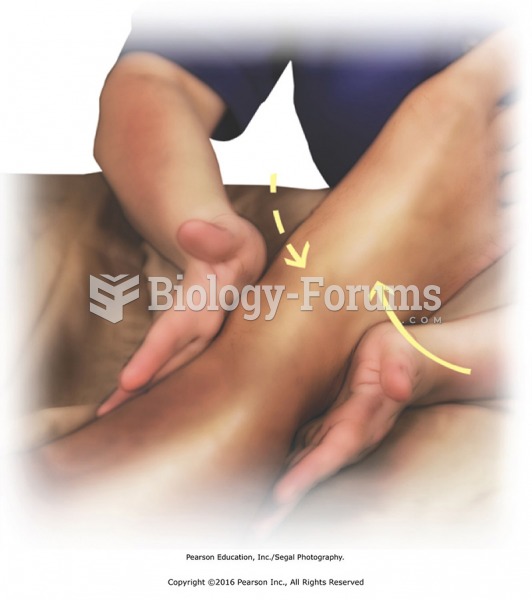|
|
|
The average human gut is home to perhaps 500 to 1,000 different species of bacteria.
In the United States, an estimated 50 million unnecessary antibiotics are prescribed for viral respiratory infections.
Though “Krazy Glue” or “Super Glue” has the ability to seal small wounds, it is not recommended for this purpose since it contains many substances that should not enter the body through the skin, and may be harmful.
The types of cancer that alpha interferons are used to treat include hairy cell leukemia, melanoma, follicular non-Hodgkin's lymphoma, and AIDS-related Kaposi's sarcoma.
The use of salicylates dates back 2,500 years to Hippocrates’s recommendation of willow bark (from which a salicylate is derived) as an aid to the pains of childbirth. However, overdosage of salicylates can harm body fluids, electrolytes, the CNS, the GI tract, the ears, the lungs, the blood, the liver, and the kidneys and cause coma or death.
 Place one hand on the medial and one on the lateral thigh to begin horizontal stroking. Slide hands ...
Place one hand on the medial and one on the lateral thigh to begin horizontal stroking. Slide hands ...
 Mobilize the ankle using the heels of the hands. Place the heels of the hands just under the ankle ...
Mobilize the ankle using the heels of the hands. Place the heels of the hands just under the ankle ...
 Place the infant faceup on a soft surface, such as a towel, and remove his or her clothing. With one ...
Place the infant faceup on a soft surface, such as a towel, and remove his or her clothing. With one ...




